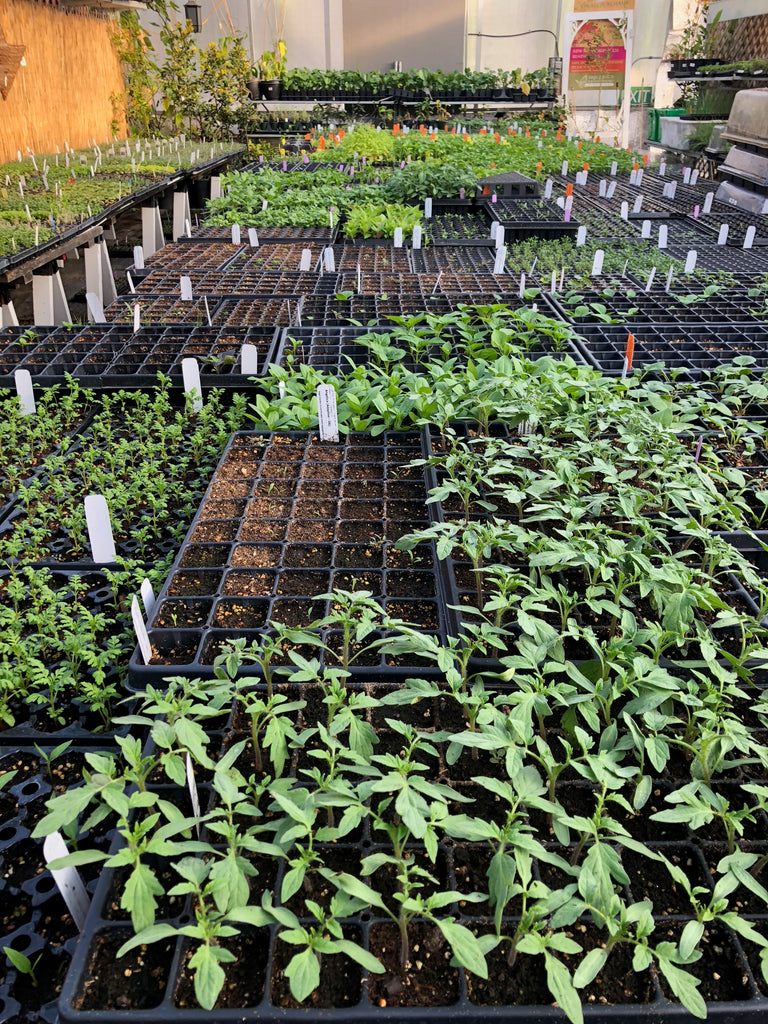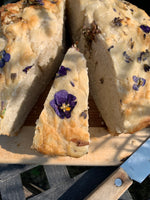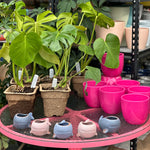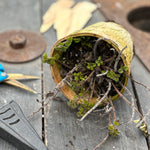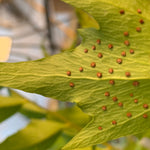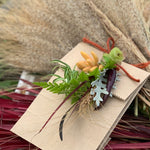1) Timing. Some seeds benefit from being started early, others suffer for it. As a rule, perennial plants and those that bear fruit require the longest growing times, and leafy varieties or those that are warm season annuals do best started close to planting time (or direct seeded).
-
These plants must be started early: (February through mid March) Peppers, Eggplant, Onions, Leeks, Artichokes, Celery, Milkweed, Fennel, Cumin, Petunias, Echinacea, Larkspur, Dianthus, Lavender, Chives, Shallots, White Sage
-
These plants should be started around the third week of March: Tomatoes, Thyme, Oregano, Parsley, Tomatillos, Catnip, Lovage, Okra, Malabar Spinach, Mexican Tarragon, Common Sage
-
These plants should be started in mid April: Lemon Balm, Bunny Tails, Basil, indoor lettuce and greens bowls, Epazote, Midnight Candy, Hyacinth Bean, Asparagus Pea
-
These plants should be started in late April: Zinnia, Squash, Cucumbers, Zucchini, Watermelon, Pumpkins
-
Many other varieties can be direct seeded - more on this closer to spring! Click here to see our seed timing chart on-line
2) Air Circulation. If there is one type of seed-starting disappointment that trumps all others, it is to have ostensibly healthy looking seedlings die off because of fungal diseases (e.g. damping off). Ensuring lots of air flow around seedlings is the # 1 practice that can eliminate fungal issues. If using humidity domes be sure to leave them off or prop them up for at least a couple of hours per day. If growing many seedlings, use a small fan to move air around. it makes a huge difference.
3) Watering Regularly. Seedlings are at their most vulnerable just as they start to germinate - so you want to be sure they have adequate moisture and do not dry out during this critical phase. You will also notice that seedlings germinate more quickly if they have consistent moisture. The trick is to water deeply and check daily. Of course you want to avoid sogginess, but it is amazing how fast a seedling tray can dry out. Also, notice that the areas around the edges of the seedling tray will dry out much more quickly than the centre; keep on eye on these areas and give them a little extra water.
4) Nourish. Seeds contain all of the energy required to germinate, but it does not take long for seedlings to run out of steam if they do not have access to nutrients. We alway apply liquid kelp (Sea Magic) at the time of sowing and bi-weekly there after. Once the plants have their second set of true leaves we alternate the kelp with Evolve Seedling Starter. Beyond the nutrients present in these supplements there are also enzymes (in the kelp) and micro-organisms (Evolve Organic) that help plants fight of disease and establish a high-functioning roots system. Feeding makes a difference!
5) Temperature. Nature has developed very specific adaptations that ensure flourishing for various plant species. One particular variable that is highly keyed into seed starting success is temperature: some plants germinate best under cool conditions and others require warmth. In some cases seeds will germinate - but slowly and sluggishly - outside their preferred temperature; in other cases germination won't take place at all.
As a rule, warm season plants germinate and develop best with a warm root zone and slightly cooler air temperature. These will be the varieties that like to be started earlier and indoors (a heat mat is the best way to give them what they want). Cool season varieties germinate and develop best with a cooler root zone and cooler air temperatures (and are best suited for direct seeding outdoors in early to mid spring).

